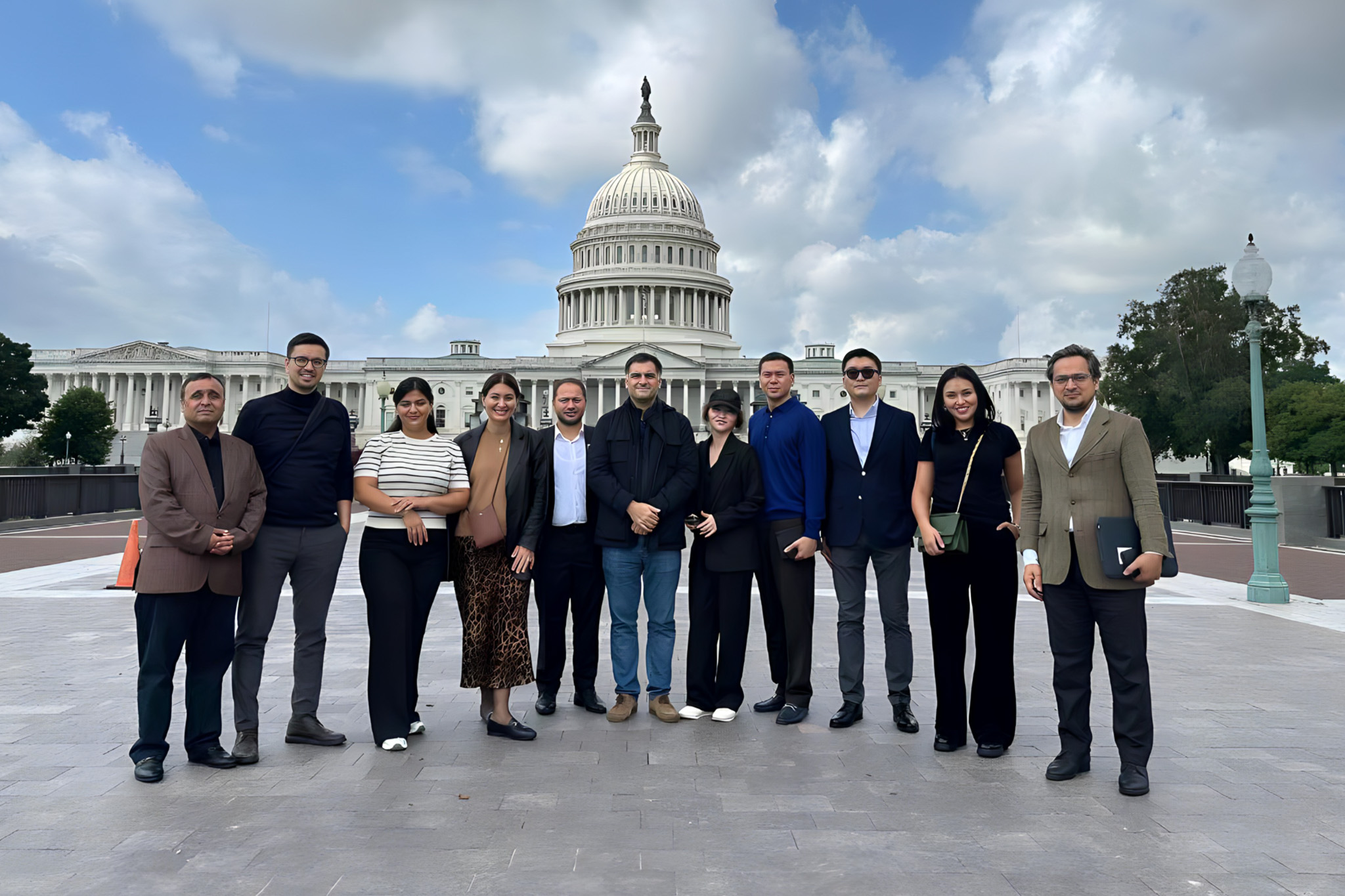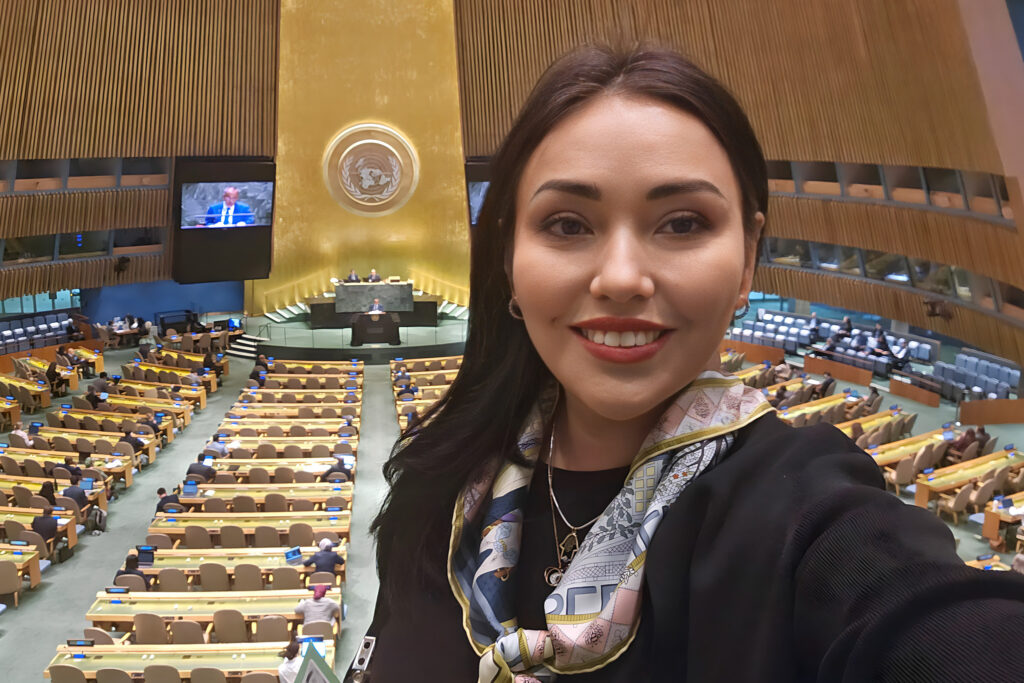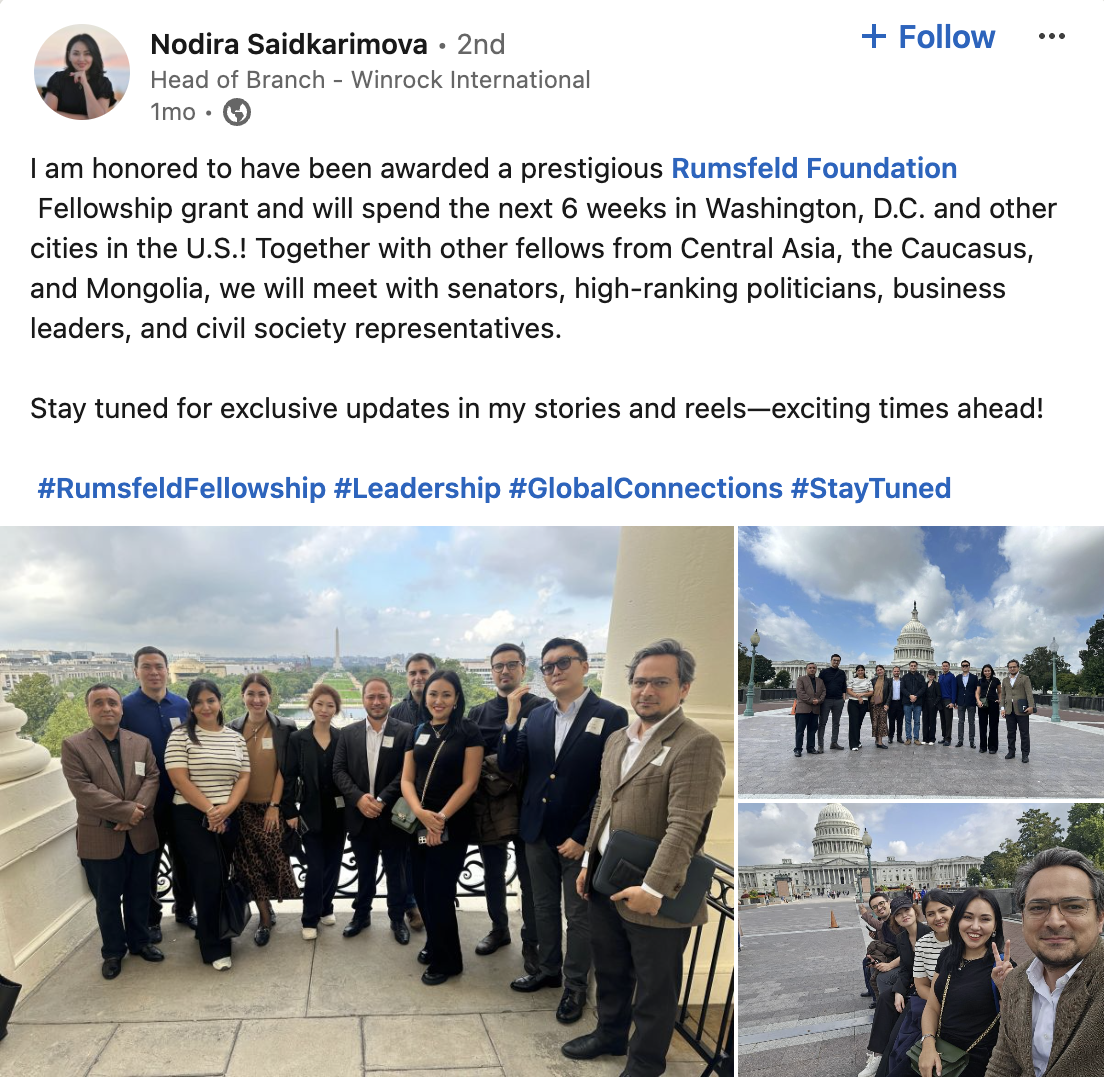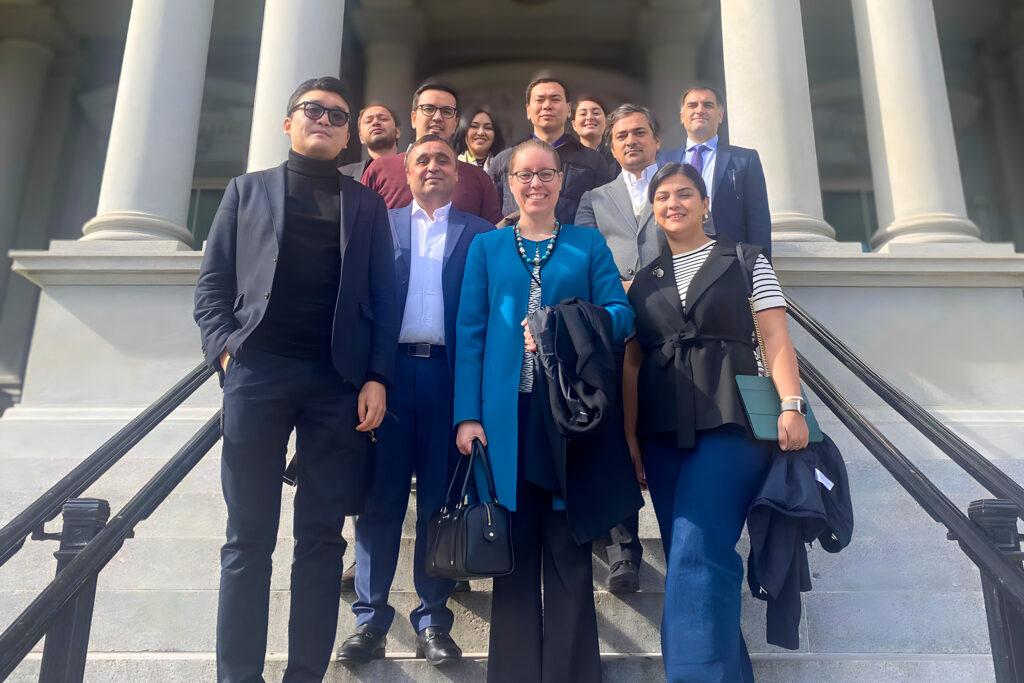
Forging global partnerships: A conversation with Winrock’s Nodira Saidkarimova
Nodira Saidkarimova, chief of party of the Safe Migration in Central Asia project, spent six weeks in Washington, D.C., as a part of the Rumsfeld Foundation and Central Asia-Caucasus Institute CAMCA Fellowship program. We asked her about her experiences raising awareness of USAID-funded counter-trafficking and safe migration work in Central Asia, expanding SMICA’s network of partners, and how it shaped her personally and professionally.
What is the Rumsfeld Fellowship and why did you apply to it?

The Rumsfeld Fellowship is a prestigious program founded in 2008 by the Rumsfeld Foundation and Central Asia-Caucasus Institute at the American Foreign Policy Council. It brings together emerging leaders from Central Asia, Mongolia, the Caucasus and Afghanistan (CAMCA) to foster collaboration between the U.S. and the region. It provides participants with a unique opportunity to engage with U.S. policymakers, business leaders, academics, military officials and regional experts to discuss global issues and promote interregional cooperation.
I applied because I saw it as a chance to expand my knowledge, connect with like-minded leaders, and bring innovative ideas back to Central Asia. The fellowship offered a platform to deepen my expertise in human rights advocacy, labor migrants’ rights, and policy reform. I wanted to explore strategies to promote legal protections, corporate responsibility and security solutions in my work on safe migration and human rights. Additionally, joining the CAMCA alumni network was a key motivator, as it offers opportunities to collaborate on projects that support democracy, prosperity, and regional cooperation. As someone committed to social change through initiatives like my podcast highlighting women leaders, I aimed to use this experience to inspire others and drive impactful programs in the region.
What are some of your takeaways from engaging with the other Rumsfeld Fellows and leaders you met as part of the program?
I was truly amazed by the level of civic engagement during the U.S. presidential elections. It was inspiring to witness people dedicating their time to volunteer for their preferred candidates − making phone calls to potential voters, writing personalized greeting cards, and even traveling to swing states like Pennsylvania to ensure their votes made a difference. This demonstrated a strong sense of responsibility and the importance of individual contributions in shaping democracy.

Another fascinating takeaway was gaining firsthand insights into U.S. perspectives on critical global issues that deeply affect the CAMCA region. The discussions on the Russian war in Ukraine, China’s growing influence, and the rising security threats to Central Asia were particularly eye-opening, especially given the dominant presence of Russian and Chinese narratives in our region.
It was also interesting to hear experts from leading think tanks reflect on the evolution of U.S. foreign policy. For example, some experts highlighted how the United States has been reassessing its previous efforts to export democracy and build state institutions abroad. These insights offered a nuanced perspective on how the U.S. is recalibrating its role on the world stage in response to both past lessons and current geopolitical realities.
Finally, I found it valuable to explore how human rights situations influence the global investment climate. Understanding the direct link between governance, transparency and economic growth emphasized the importance of improving these areas to attract sustainable international investments − an insight I hope to bring back to the region to drive positive change.
How does this leadership opportunity support the work you, the SMICA project, and your partners are conducting in Central Asia?
This opportunity has significantly enhanced my ability to support SMICA’s work by providing valuable tools, strategies and networks to advance our efforts in counter-trafficking and safe migration. The fellowship has equipped me with innovative approaches, such as integrating AI and technology into program design, and strengthened my capacity to advocate for labor migrants’ rights and forge impactful partnerships.

In addition to insights gained on critical issues like climate migration, radicalization in migrant communities, and the xenophobia stemming from geopolitical tensions such as Russia’s invasion of Ukraine, I’ve also developed a deeper understanding of addressing these issues. This includes examining topics like Central Asian migrants crossing the U.S.-Mexico border and the broader implications of global migration patterns for our region. In addition, high-level meetings at the U.S. Department of State, USAID, and the U.S. Institute of Peace helped to enhance my understanding of U.S. foreign policy priorities in Central Asia, as well as the existing impetus on strengthening regional collaborations.
Importantly, I’ve established valuable connections with experts and leaders from both the CAMCA region and the U.S. These relationships will serve as crucial resources for efficient implementation of SMICA’s initiatives, helping to align our work with global best practices while fostering stronger regional and international collaboration.
What is next for SMICA?
The knowledge I have gained on U.S. foreign policy, migration trends and innovative approaches will help me in refining SMICA’s strategies. It will also help to improve our understanding and analysis of U.S. foreign policy priorities in Central Asia and application of this knowledge into SMICA’s work and aligning it with broader geopolitical trends.
The fellowship provided valuable connections within the CAMCA region and the U.S., which will be utilized to foster new partnerships and strengthen regional collaboration on migration issues. In addition, with a deeper understanding of international best practices and policy strategies, SMICA will intensify its work in counter-trafficking, promoting safe migration, and addressing emerging issues driven by geopolitical tensions.
Nodira Saidkarimova has more than 20 years of experience driving social and economic transformation in Central Asia. She is an expert in the design, implementation and management of technical assistance programs across human rights, migration, human trafficking, women’s empowerment and community development. She is a member of the Freedom Collaborative Advisory Community and is dedicated to fostering collaboration and driving sustainable change in the realm of human rights and social impact.
To learn more about Winrock’s human rights work around the world, click here.
Related Projects

